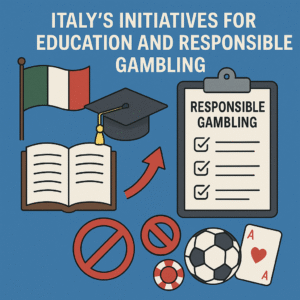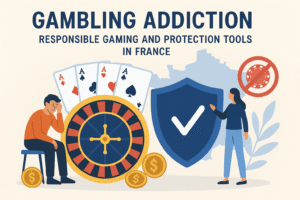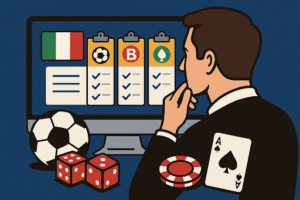Will France Finally Regulate Online Casinos? Inside the Debate Shaping the Future of iGaming
Fifteen years after France opened the door to online sports betting and poker, the country has once again reached a turning point. Since the 2010 Gambling Act, French players have legally been able to bet on sports, wager on horse races, or play online poker. But anything that looks like a classic casino game, slots, blackjack, roulette, baccarat, remains strictly off-limits online.

And yet, the idea of legal online casinos keeps resurfacing. In 2024, several government officials hinted that regulation could finally be on the table. Months later, nothing concrete has emerged, and the conversation has only become more intense.
Between economic pressures, political hesitation, and the explosion of illegal offshore sites, France now faces a simple question that’s been avoided for years:
Should online casinos be regulated, and if so, what should that look like?
A Legal Framework That’s Clear… and Extremely Limited
France currently runs one of the strictest online gambling systems in Europe. Everything is supervised by the Autorité Nationale des Jeux (ANJ), the regulator created in 2020 to protect players, control advertising, combat fraud, and ensure transparency.
Under the current rules, only three online activities are allowed:
- Sports betting
- Horse racing bets
- Online poker
That’s it. No slots, no roulette, no digital blackjack tables. Anyone who wants legal, regulated entertainment must stick to ANJ-licensed operators, names like Betclic, Winamax, PMU, and Parions Sport.
This restrictive model now feels increasingly out of step with the rest of Europe, where countries such as Italy, Spain and the UK fully regulate online casino games.
Why France Is Rethinking Its Position
The push to revisit the law isn’t happening in a vacuum. Several trends have made reform harder to ignore.
1. The explosion of illegal offshore sites
Despite regular ANJ crackdowns, unauthorized casino platforms keep popping up, and thriving. They attract players precisely because France offers no legal alternative, creating a black market with zero consumer protection.
2. A financial opportunity that’s hard to overlook
Government analyses estimate that regulated online casinos could bring in hundreds of millions of euros a year. With tight public budgets, that kind of revenue gets attention.
3. Pressure to align with Europe
French players are increasingly digital-first. And with neighboring countries already regulating online casinos, France risks falling behind, both technologically and economically.
4. Political momentum
In late 2024, officials openly acknowledged that legalization was being considered. Since then, the timeline has slowed, but the intention hasn’t disappeared.
What’s Holding France Back?
Despite the clear incentives, several powerful forces are pushing back.
Resistance from land-based casinos
Physical casino operators fear losing customers to online options. Many of them rely on tourism, jobs, and regional economic activity, and see legalization as a direct threat.
Fears about addiction
Casino-style games are fast, engaging, and among the most addictive forms of online entertainment. Advocacy groups warn that expanding access could worsen gambling-related harm, especially among younger adults.
A complex regulatory task
Creating a casino framework isn’t as simple as flipping a switch. Lawmakers would need to define technical standards, licensing rules, taxation models, advertising limits, and enhanced player-protection systems.
Balancing the existing industry
Any reform needs to avoid destabilizing the sports betting market, where long-standing French operators, Betclic, Winamax, PMU, Parions Sport, already work under strict rules.
How Other Markets Handle Online Casinos: Lessons from Italy, the UK, the US, Canada and Brazil
While France is still debating whether to open the door to online casinos, several major jurisdictions have already moved ahead with full or partial regulation. Looking at how those markets operate offers a useful roadmap, and a warning, for French lawmakers.
Italy: A Mature, Heavily Licensed Market
Italy is one of Europe’s most advanced iGaming markets. Online casino games are legal under a licensing regime managed by the customs and monopolies agency, ADM (formerly AAMS). Remote gambling concessions were first introduced in the early 2010s and are now awarded through competitive tenders.
In 2025, Italy launched a new nine-year online licence tender, granting concessions to 46 operators covering over 50 brands, including major groups like Bet365, 888, LeoVegas and Sisal. The Italian example shows how a state can open casino gaming online while keeping a tight grip on who is allowed to operate and under what technical and compliance standards.
United Kingdom: Full Regulation with Tough Player Protections
The United Kingdom has one of the most liberal yet tightly regulated online casino environments in the world. The UK Gambling Commission regulates all gambling sectors, including “remote” (online) casinos. Operators must obtain a remote casino operating licence to offer slots, roulette, blackjack or poker via websites or apps.
In recent years, the UK has moved decisively to strengthen player protection: new rules introduce financial checks on customers above certain deposit thresholds and stricter game-design rules aimed at slowing down slot gameplay and reducing intensity. The British model illustrates what France may face if it legalizes online casinos: a dynamic private market combined with increasingly intrusive consumer-protection measures.
United States: A Patchwork of State-by-State Legalization
Unlike France or the UK, the United States has no single federal framework for online casinos. Instead, each state decides whether to authorize iGaming. As of late 2025, fully regulated online casinos, offering real-money slots and table games, are legal in only seven states: New Jersey, Pennsylvania, Michigan, Delaware, West Virginia, Connecticut and Rhode Island.
Other states, including New York, Illinois and Massachusetts, are actively debating bills to join this group. The US experience underlines two key lessons:
- legal online casinos can generate important tax revenues for individual states,
- but a fragmented map also leaves space for unlicensed offshore operators to target residents in non-regulated states.
Canada: Provincial Models and Ontario’s Open iGaming Market
Canada regulates gambling primarily at the provincial level. Each province decides whether to offer online casino games and under which model. Historically, this meant government-run platforms such as OLG.ca in Ontario.
In 2022, Ontario broke new ground by launching a competitive iGaming market where private operators can be licensed under the supervision of the Alcohol and Gaming Commission of Ontario (AGCO) and iGaming Ontario.
The result: Ontario has quickly become one of North America’s largest regulated online gambling markets. For France, the Canadian model highlights a possible “middle way”, combining public oversight with a controlled opening to private brands.
Brazil: A New Federal Framework Combining Sports Betting and Online Casino
Until very recently, Brazil had no clear nationwide framework for online gambling. That changed with Law 14.790/2023 and subsequent regulations, which created a federal licensing system for fixed-odds betting and “online games,” a category that includes online casino products.
From January 2025 onward, only operators duly authorized by the Ministry of Finance can offer and advertise these services. Licences cost around BRL 30 million for a five-year period and may cover both sports betting and online casino activities.
Brazil has already issued dozens of licences, creating one of the most promising emerging markets in the world, but also raising questions about enforcement and responsible-gambling infrastructure in a huge, diverse country.
What a Future Reform Might Look Like
Although no bill has been adopted, a few potential models are emerging.
A controlled, gradual rollout
France may initially grant licenses only to land-based casino groups. This would protect traditional venues and mirror approaches used elsewhere in Europe.
Allowing current sports betting operators to expand
Another scenario would let existing ANJ-licensed bookmakers, such as Betclic or Winamax, apply for online casino licenses, diversifying their offer.
Strict rules and heavy compliance
Any framework would almost certainly include:
- High technical integrity standards
- Strong responsible-gaming requirements
- Tight advertising restrictions
- Advanced fraud and AML controls
A long timeline
A 2025 launch seems unlikely now. A phased rollout in 2026 or later is far more realistic.
What It Would Mean for the Sports Betting Sector
If casino games become legal, sports betting in France will feel the effect almost immediately.
- More opportunities for current operators: Bookmakers could add casino games to their portfolios.
- More competition: International operators strong in iGaming will likely try to enter the French market.
- More aggressive marketing: Casinos attract highly engaged players, meaning acquisition strategies could intensify.
- More consumer demand for comparison guides: Bettors would likely rely more on trusted resources such as the best sports betting sites in France to navigate new options.
For French bookies, regulation could be a huge opportunity, but only if they’re allowed to participate.
Player Protection Will Be the Core of Any Reform
Regardless of the model chosen, one thing is clear: France won’t legalize online casinos without setting some of the toughest responsible-gaming rules in Europe.
The ANJ already enforces:
- Mandatory ID and account creation
- Deposit limits
- Self-exclusion options
- Advertising controls
- Fraud prevention measures
- Monitoring of at-risk behavior
For online casinos, the requirements will become even stricter, with likely additions such as:
- Real-time risk detection
- Mandatory affordability checks
- Tighter rules on bonuses
- More restrictions on casino ads
Player safety will make or break the reform.
What Legalization Could Bring
If France eventually moves forward, the country could see:
- Significant new tax revenue
- A safer, more transparent online ecosystem
- Reduced reliance on illegal sites
- More innovation and competition
- Better protections for players
It would also bring France closer to European standards and modernize a system that hasn’t changed much in over a decade.
A Slow but Inevitable Shift?
France is at a crossroads. The government knows change is needed, operators are preparing, and illegal platforms continue to grow. But political caution, social concerns, and industry disagreements are slowing everything down.
Whether it happens in 2025, 2026 or even later, one thing is becoming clear:
- The pressure to regulate online casinos is only increasing, and France will eventually have to make a choice.







